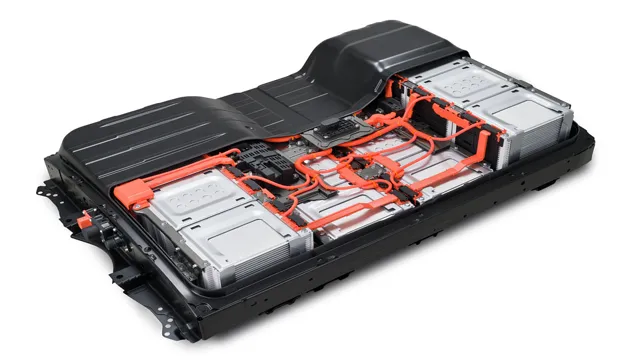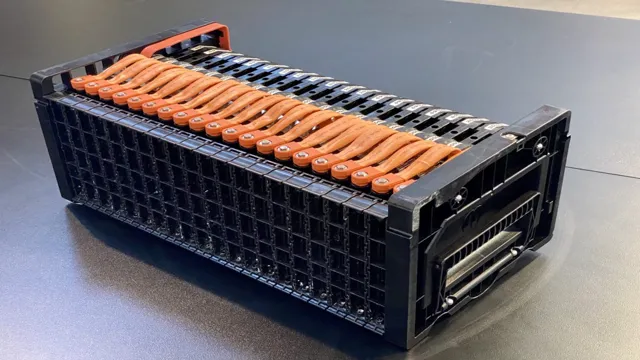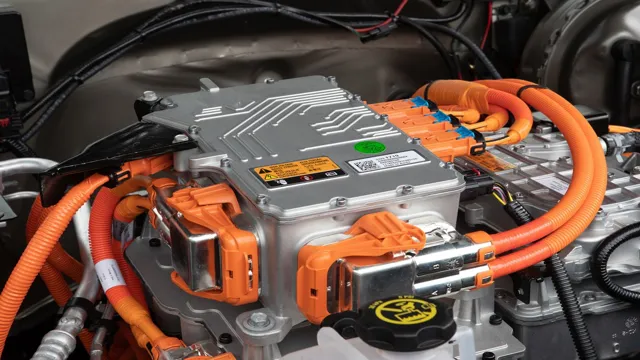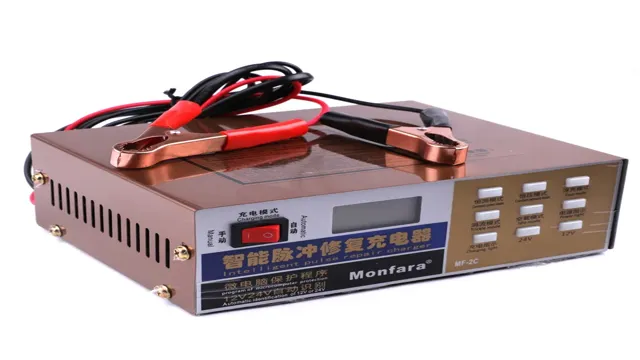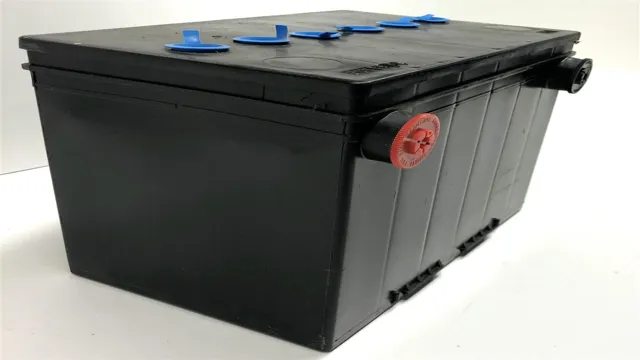Power Up your Ride: Discover the Best Batteries for Electric Car Conversion
Electric vehicle conversions are becoming more and more popular as people look for eco-friendly and cost-effective ways to travel. One of the most important components of an EV conversion is the battery, as it determines the range and performance of the vehicle. However, with so many options out there, it can be difficult to determine which batteries are the best for your needs.
That’s where we come in – we’ve done the research and compiled a list of the best EV conversion batteries on the market. These batteries are reliable, long-lasting, and provide enough power to keep your vehicle running smoothly. Whether you’re on a budget or looking for a top-of-the-line option, we’ve got you covered.
So, if you’re thinking about converting your vehicle to electric power, keep reading to learn more about the best batteries on the market. From lithium-ion to lead-acid, we’ll break down everything you need to know about choosing the best EV conversion battery for your needs.
Why Use Electric Car Conversion Batteries
If you’re interested in converting a gas-powered vehicle into an electric one, then you’ll need a reliable battery for the job. One of the best options available is an electric car conversion battery. These batteries are designed specifically for electric car conversions and they offer a number of benefits.
Firstly, they are more efficient than standard lead-acid batteries, which means you’ll get more power from each charge. Furthermore, they are able to provide more consistent power over a longer period of time, which is essential for longer trips. Additionally, electric car conversion batteries are typically more lightweight and durable than lead-acid batteries, which means they’ll last longer and require less maintenance.
So if you’re looking to convert your gas guzzler into an electric vehicle, consider investing in an electric car conversion battery for the best results.
Benefits of Lithium-ion vs Lead-acid Batteries
Electric Car Conversion Batteries When it comes to choosing the right batteries for your electric car conversion, you have two main options: lithium-ion and lead-acid batteries. While both have their advantages, lithium-ion batteries are the clear winner for several reasons. First of all, they are much lighter and smaller than lead-acid batteries, making them much easier to install in your electric car.
They are also more efficient, providing more power for a longer period of time, which means you can cover greater distances without needing to recharge. Additionally, lithium-ion batteries are much more environmentally friendly than lead-acid batteries, producing less pollution and requiring less water for maintenance. Finally, lithium-ion batteries are much more durable and last much longer than lead-acid batteries, making them a much better long-term investment.
So if you’re looking for the best batteries for your electric car conversion, lithium-ion batteries are definitely the way to go.
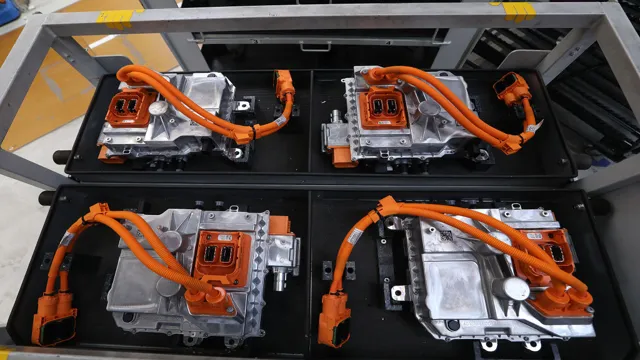
Factors to Consider When Choosing a Battery
When it comes to choosing a battery for your electric car conversion, there are several factors that you should consider. One of the most important of these is the type of battery that you choose. Lithium-ion batteries are a popular choice, as they offer a high energy density and a longer lifespan than other types of batteries.
Additionally, they are lightweight and compact, making them easy to install in your vehicle. Another key factor to consider is the capacity of the battery, which will determine how far you can drive on a single charge. Finally, you should also take into account the cost of the battery, as well as any additional features that may be included, such as a battery management system or an integrated charger.
By considering these factors carefully, you can choose a battery that is ideally suited to your needs and budget.
The Top EV Conversion Batteries on the Market
If you’re looking to convert your gas-guzzling vehicle to an electric one, one of the most critical components you’ll need is a battery for electric car conversion. Luckily, the demand for electric vehicles has led to a wide selection of batteries designed specifically for EV conversions. Lithium-ion batteries are the most popular choice for many drivers, thanks to their energy density and low weight.
They come in varying capacities, with larger capacities providing longer ranges. Other options include lead-acid batteries, which are less expensive but bulkier and less efficient, and nickel-metal hydride batteries, which have higher energy density than lead-acid, but lower than lithium-ion. The type of battery you choose for your EV conversion depends on your budget, driving needs, and personal preferences.
Whichever option you go for, make sure to do your research and choose from a reputable manufacturer to get the best performance and reliability from your electric car conversion.
1. Tesla Model S Battery Module
If you’re considering converting your vehicle to an electric vehicle (EV), one of the most important components you’ll need to consider is the battery. After all, the battery is what powers the vehicle! Fortunately, there are several high-quality options on the market, including the Tesla Model S Battery Module. This battery is noted for its high energy density, which allows for longer driving distances and faster acceleration.
It’s also been tested extensively by Tesla, so you can be confident in its reliability. Of course, the Tesla Model S Battery Module is just one of many good options out there. Be sure to do your research and choose the battery that’s right for your needs.
2. Chevy Volt Battery Pack
The Chevy Volt battery pack is one of the most popular EV conversion batteries on the market. It’s a 16 kWh lithium-ion battery pack that can power an electric motor for up to 53 miles on a single charge. This makes it ideal for EV enthusiasts looking to upgrade their vehicles’ batteries and convert them into electric cars.
One of the key benefits of the Chevy Volt battery pack is its reliability. It’s designed to last for up to 10 years or 150,000 miles, which gives EV owners peace of mind knowing they won’t have to replace their battery any time soon. Additionally, the battery pack is relatively easy to install and can be used in a variety of different EV conversion projects.
Another advantage of the Chevy Volt battery pack is its affordability. Compared to other EV conversion batteries on the market, it’s relatively inexpensive and provides excellent value for money. Plus, it can be easily found on the market, which is another plus for the DIY EV conversion community.
Although there are other EV conversion batteries on the market, the Chevy Volt battery pack stands out due to its reliability, affordability, and versatility. Whether you’re upgrading an existing electric vehicle or starting a new EV conversion project from scratch, this battery pack is definitely worth considering.
3. Nissan Leaf Battery Pack
The Nissan Leaf battery pack is one of the most popular options for EV conversion batteries on the market. With a capacity of 40 kilowatt-hours (kWh), it offers a respectable range of around 150 miles per charge. The Leaf battery pack also boasts a long lifespan, with Nissan claiming it can last up to 10 years.
One major advantage of using the Leaf battery pack for conversions is its modular design, which makes it easy to swap out individual modules as needed. Additionally, since the Leaf is one of the most popular electric vehicles on the market, there is a wealth of information and resources available for those looking to work with this battery pack. All in all, the Nissan Leaf battery pack is a solid choice for those looking to convert their vehicle to electric power.
How to Install an EV Conversion Battery
If you’re looking to convert your gas-powered car into an electric vehicle, one of the essential components you’ll need is a battery for electric car conversion. But before you get started, it’s important to do your research and choose the right battery for your specific needs. You’ll need to determine factors such as the size and weight of your vehicle, the amount of power you’ll need, and your budget.
Once you’ve selected the best battery for your electric car conversion, it’s time to install it. The installation process can vary depending on the make and model of the vehicle, but it generally involves disconnecting the old engine and removing it from the vehicle. Then, you’ll need to mount the new battery and connect it to the electric motor.
Wiring the battery can be an intricate process, so it’s essential to follow the manufacturer’s instructions carefully. With patience and attention to detail, installing a battery for electric car conversion can be a rewarding and exciting project that allows you to enjoy emission-free driving.
Tools You’ll Need
When it comes to converting a traditional gas-powered car to electric, installing a new EV conversion battery is a crucial step. But before you get started, there are a few tools you’ll need to make the process go smoothly. These include a torque wrench, a socket set, and pliers, as well as safety equipment like gloves and safety glasses.
You’ll also need a battery management system to ensure that your new battery pack stays healthy and safe. Once you’ve gathered all of your tools, you can begin the installation process. The exact steps will vary depending on the make and model of your vehicle, but generally, you’ll need to remove the existing engine and fuel system and install the new battery pack in its place.
It’s important to follow all instructions carefully and to be patient throughout the installation process. With the right tools and some know-how, installing an EV conversion battery can be a fun and rewarding project that will save you money and help reduce your carbon footprint.
Step-by-Step Guide
Installing an EV conversion battery is the first big step in converting your conventional vehicle into an electric one. Here’s a step-by-step guide to help you through the process. First, you’ll need to find the right battery for your vehicle.
When choosing, consider the voltage, capacity, and chemistry options available. You’ll also want to make sure the battery can fit into your vehicle’s available space. Once you have your new battery, it’s time to remove the old one.
Start by disconnecting the car’s battery cables and removing any mounting brackets holding the battery in place. Carefully remove the battery and dispose of it properly. Now it’s time to install the new battery.
Begin by placing it in the same location as the old battery and securing it with the mounting brackets. Then, start connecting the battery cables, making sure to connect the positive and negative terminals as appropriate. To complete the installation, you’ll need to run wiring from the battery to your electric motor.
You may need to drill holes or make modifications to your vehicle’s body to accommodate the wiring. Be sure to use high-quality wiring and connectors to ensure safety and reliability. Overall, installing an EV conversion battery can be a complex process but it’s also an exciting step towards owning an electric vehicle.
With the right tools, knowledge, and patience, you can successfully complete the installation and start enjoying your new electric ride!
Conclusion
So, what’s the deal with batteries in electric car conversions? Well, they’re basically the heart and soul of the operation. Just like how a human needs a healthy heart to keep everything running smoothly, a converted electric car needs a reliable and efficient battery to power its motor. It’s the key to unlocking the full potential of the vehicle’s emissions-free and electrifying capabilities.
So, if you’re considering making the switch to electric, remember: a good battery is worth its weight in (electric) gold!”
FAQs
What type of battery is required for an electric car conversion?
Lithium-ion batteries are the most commonly used type of battery for electric car conversions due to their high energy density and ability to be recharged quickly.
Can any car be converted to run on electricity?
Generally, any car with an internal combustion engine can be converted to run on electricity. However, the cost and feasibility of the conversion depend on several factors such as the weight and size of the car and the availability of compatible parts.
How long does it take to convert a car to run on electricity?
The conversion process can take anywhere from a few weeks to several months, depending on the complexity of the conversion and the expertise of the person or team performing it.
Is it more cost-effective to convert a car to run on electricity rather than buying a new electric car?
In most cases, it is more cost-effective to buy a new electric car instead of converting a gas-powered car to run on electricity. This is because the cost of the conversion, including the battery, electric motor, and other necessary components, can be significantly higher than the cost of a new electric car.

